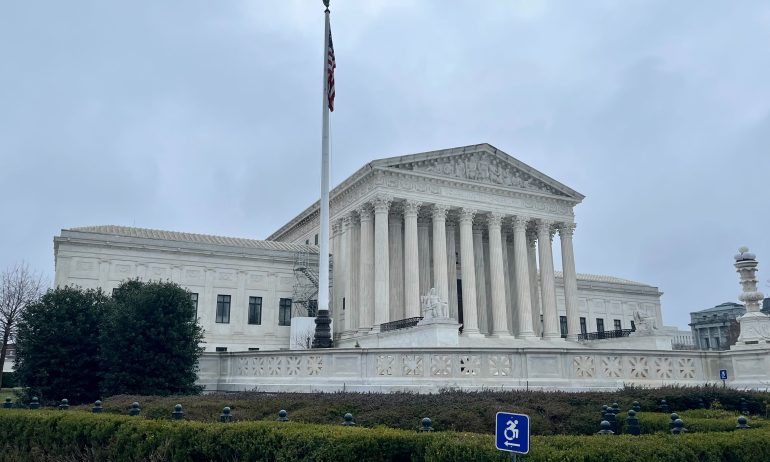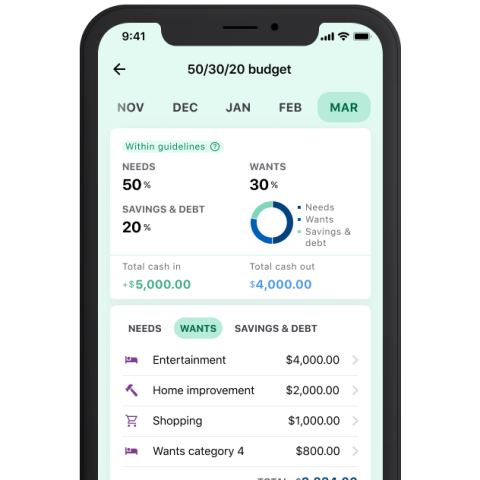Supreme Court to Soon Decide CFPB Funding Fate

Many or all of the products featured here are from our partners who compensate us. This influences which products we write about and where and how the product appears on a page. However, this does not influence our evaluations. Our opinions are our own. Here is a list of our partners and here's how we make money.
Updated on April 5.
The Supreme Court is weighing the constitutionality of how the Consumer Financial Protection Bureau (CFPB) is funded in a case that could put the fate of the agency into jeopardy — along with other, similarly-funded government agencies.
On Oct. 3, the court heard oral arguments for Consumer Financial Protection Bureau v. Community Financial Services Association of America. The high court is expected to deliver its decision sometime later this spring.
The CFPB is a consumer watchdog agency funded by the Federal Reserve System, not Congress. This funding mechanism was established by a Democrat-led Congress and is meant to safeguard the agency’s funding against changes in the political climate.
Other government agencies are also funded outside of the appropriations process, including the Federal Reserve, the Federal Deposit Insurance Corp. (FDIC), the Comptroller of the Currency, along with programs like Medicare, Medicaid and Social Security.
The case against the CFPB was brought by the Community Financial Services Association of America and the Consumer Service Alliance of Texas, which both represent the payday loan industry. The suit alleges that the CFPB’s funding mechanism is unconstitutional under the Appropriations Clause of the Constitution. That clause says “no money shall be drawn from the Treasury, but in consequence of appropriations made by law.”
Last year, the U.S. Court of Appeals Fifth Circuit in New Orleans took on the case and in October 2022, the judges in that panel unanimously ruled against the CFPB.
The stakes in the case are high: If the Supreme Court upholds the Fifth Circuit’s ruling could topple the CFPB’s funding mechanism and stymie its ability to carry out its mission in the future. It could also, potentially, throw 12 years of the agency’s past actions and regulations into question. And such a decision could draw additional legal challenges against other agencies that are similarly funded.
What is the CFPB?
The CFPB was formed in the wake of the 2008 financial crisis, under the Dodd-Frank Wall Street Reform and Consumer Protection Act of 2010. Its mission is to implement and enforce federal consumer financial law. It does so by holding accountable the companies that market these types of products such as payday loans, credit cards, student loans and mortgages. It additionally collects consumer complaints.
The CFPB can also take legal action against companies. From 2012 to 2022, the agency has filed 322 public enforcement actions, resulting in more than $16 billion in relief to consumers and $3.7 billion in fines.
How much funding does the CFPB receive?
In fiscal year 2023, the CFPB has $3.57 billion in budgetary resources, which represents roughly 0.006% of the $6.4 trillion fiscal year 2023 U.S. federal budget. But the agency planned to spend much less — about $723.3 million, which represents about 20% of its overall resources.
What is the case against the CFPB?
The question of the CFPB’s funding wasn’t the primary focus of the original lawsuit — its 2017 payday lending rule was. That rule prevents short-term lenders from lending to consumers without reasonably determining if they can repay the debt. It also prevents lenders from withdrawing payments directly from consumers’ bank accounts when payments have been missed without permission of the consumer.
The suit originated in April 2018, was eventually struck down and then appealed in the Fifth Circuit Court. There, the panel of judges didn’t side with the two plaintiffs on their claims against the 2017 payday lending rule, but they did agree with the plaintiffs’ claim against the CFPB’s funding mechanism.
In the Fifth Circuit Court’s decision, it said the “Bureau’s unique, double-insulated funding mechanism” violated the constitution's separation of powers.
Soon after the Fifth Circuit Court’s decision was handed down, the Biden Administration appealed to the Supreme Court. On Feb. 27, the Court agreed to hear the case in its 2023-2024 session.
What happens next?
The Supreme Court heard oral arguments in the case back in October. At the time there were numerous reports indicating that high court justices seemed doubtful about the Fifth Circuit’s ruling in the case. But skepticism expressed during oral arguments is no guarantee that the Supreme Court will rule in favor of the CFPB.
The Supreme Court is expected to hand down its decision sometime this spring. All opinions are released by the end of the high court’s term, typically by the end of June.


